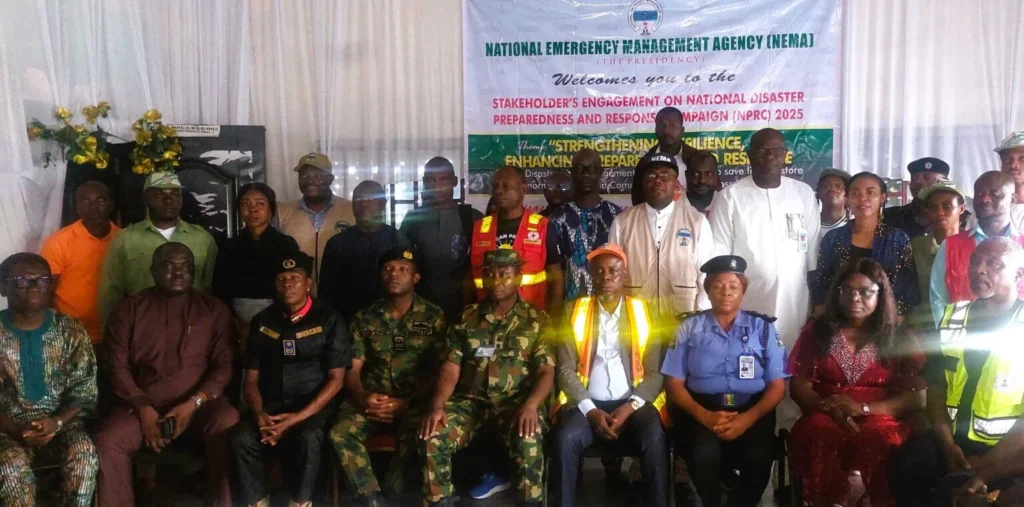The National Emergency Management Agency (NEMA) has expressed growing concern over the imminent risk of flooding in Rivers and 11 other Nigerian states.
Mrs Zubaida Umar, Director General of NEMA, raised the alarm during the launch of a multi-stakeholder engagement on Wednesday in Port Harcourt.
She issued the warning based on the 2025 forecast by the Nigerian Meteorological Agency (NiMeT), which predicts severe flooding in four local government areas of Rivers: Ahoada West, Ahoada East, Andoni, and Opobo/Nkoro.
Umar, represented by Dr Godwin Tepiko, Director of NEMA’s South-South Zonal Directorate, said the forecast prompted the agency to initiate its National Preparedness and Response Campaign (NPRC), aimed at reducing the expected impact.
She stressed the importance of stakeholder engagement in ensuring timely and effective measures to protect lives and livelihoods during the rainy season.
“The devastating impacts of annual floods in Nigeria necessitate collaboration among all tiers of government, development partners, the private sector, media and citizens to manage disaster risks and build national resilience.
“Lives, livelihoods, and infrastructure worth billions of naira have been lost to floods and related hazards in recent years.
“Nigerians have suffered injuries and lost their life savings due to unmitigated flooding and associated hazards year after year,” she stated.
According to Umar, early warning systems have enabled NEMA to understand the disaster risk management implications of the forecast and develop mitigation strategies to be shared with vulnerable communities.
She said vulnerability maps had been produced to help federal, state and local authorities implement effective risk reduction measures.
Key risks identified include delayed onset of rains, earlier-than-usual cessation of rainfall, above-normal precipitation, and prolonged dry spells.
“These factors are expected to significantly affect socio-economic sectors, including disaster management, health, agriculture, transportation, water supply, education, security, and the environment.
“To address these challenges, NEMA has implemented several proactive measures, including capacity building for local emergency responders, simulation exercises, aligning planting with rainfall predictions, livestock vaccination, and pre-positioning of emergency supplies.
“In addition, we are campaigning for the desilting of drainages, integrity tests on critical infrastructure, evacuation planning, and enhanced safety and security surveillance in high-risk communities,” Umar added.
She announced that field officers, in collaboration with state and local emergency agencies and volunteers, had been deployed to deliver early warning messages directly to flood-prone communities.
Umar appealed to residents to begin preparations in anticipation of the potential flood to avoid a repeat of past unpreparedness.
She also called on traditional leaders, religious organisations, women and youth groups, and the media to support national efforts to reduce the impact of the expected disaster.
Prof. Daniel Mbee, Director of the Centre for Disaster Risk Management and Development Studies at the University of Port Harcourt (UNIPORT), commended NEMA’s proactive approach to stakeholder engagement.
He encouraged the agency to broaden its consultations.
“The inclusion of more stakeholders is critical, given the scale of the forecasted flooding, which could displace entire communities and destroy infrastructure.
“There is a need for government to treat this matter with the utmost urgency and ensure broader participation in mitigation efforts to minimise the impact of the impending disaster,” Mbee stated.
Participating organisations included the Ministry of Health, Nigerian Army, Nigerian Navy, Police, NSCDC, FRSC, Red Cross, civil society organisations, local government representatives, and vulnerable communities.
(NAN)


